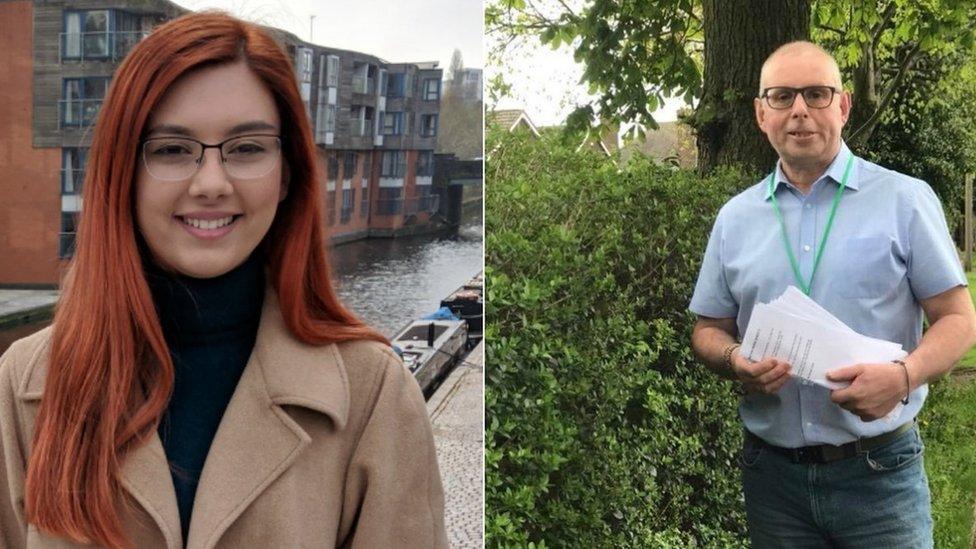Councils 'need culture change' to boost diversity, campaigner says
- Published
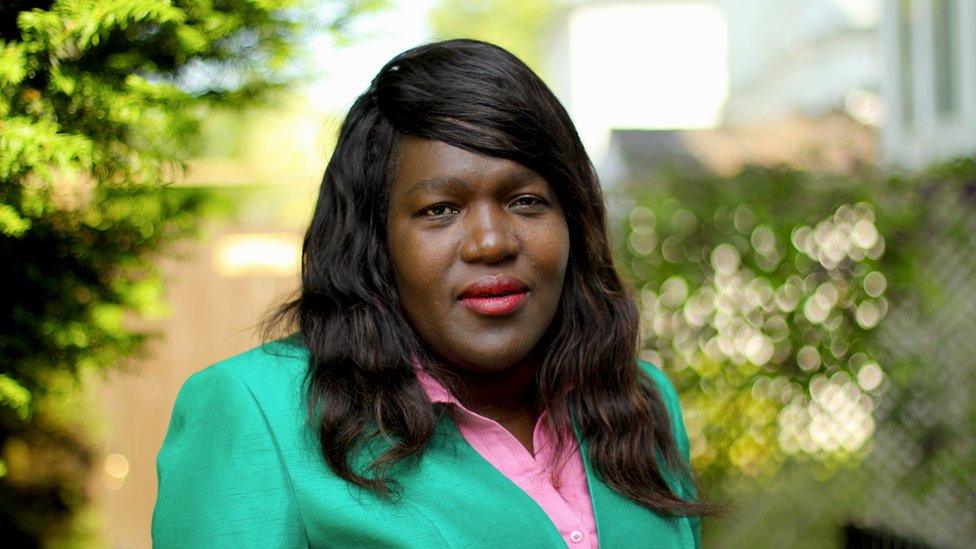
Florence Nyasamo works with businesses to help them adhere to equality laws
Councils would need a culture change if they wanted to encourage more people of colour to stand in local elections, a Black Lives Matter campaigner has said.
Florence Nyasamo's comments followed the suspension of a local politician in Cheltenham who repeatedly used a racial slur in a council meeting.
Liberal Democrat Dennis Parsons was later suspended by his party.
The Local Government Association (LGA) said it wanted more BAME people, women, parents and carers as candidates.
Mr Parsons has not been not the only councillor to have been criticised for either using racist words or sharing racist posts on social media.
In North Somerset, Conservative Elfan Ap Rees tweeted that Bristol should "get over" its links to slavery while another Conservative, Robin Vickery in Suffolk, shared a Facebook post calling for black and Asian people to be deported.
Last year Peter Brennan, a Labour councillor, resigned as Lord Mayor of Liverpool after sharing a racist video on WhatsApp.
The LGA said it would be for "individual councils to investigate and any action will be a decision made by that council".
'Inspire and motivate'
Across England, 2018 figures, external showed 96% of councillors were white and 63% were male.
In Cheltenham, council figures for 2019, external showed 91% of the population were white, with 4.6% from black, and ethnic minority backgrounds, below the national average of 14.6%.
Cheltenham has no black or brown councillors, although 10 of the 40 posts are held by women.
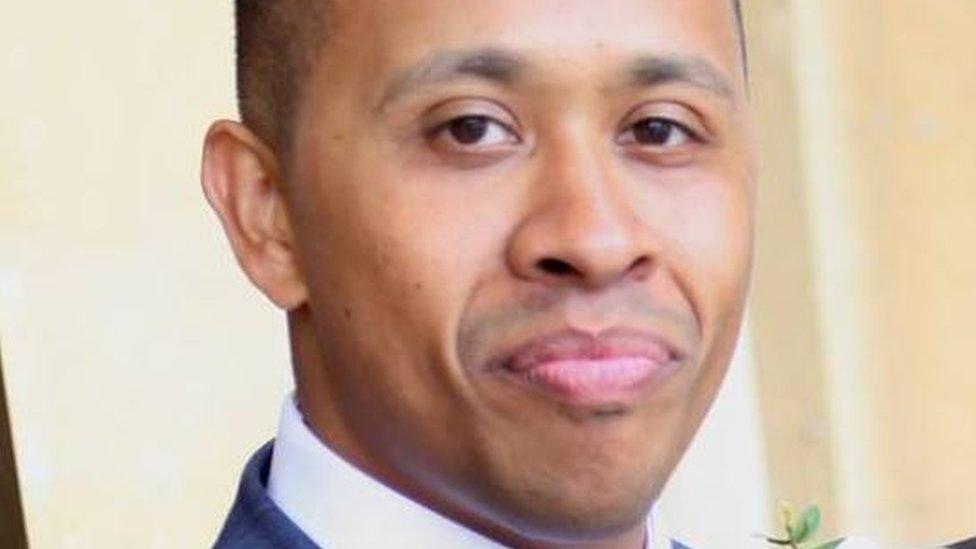
Jermaine Ravalier wants to stand for election to his local council next year
This lack of ethnic diversity has spurred on Dr Jermaine Ravalier, a reader at Bath Spa University, who wants to stand in next year's local election for the Liberal Democrats.
He said: "One of the ways I can do that is by standing and getting involved myself.
"The second way is that if I'm successful in this, you can always can inspire and motivate other like-minded people from a similar background."
He said local politics may not be culturally "engrained", and black people were predominantly in low paid jobs so could not afford the time to take on a post for which the only financial reward was expenses being covered.
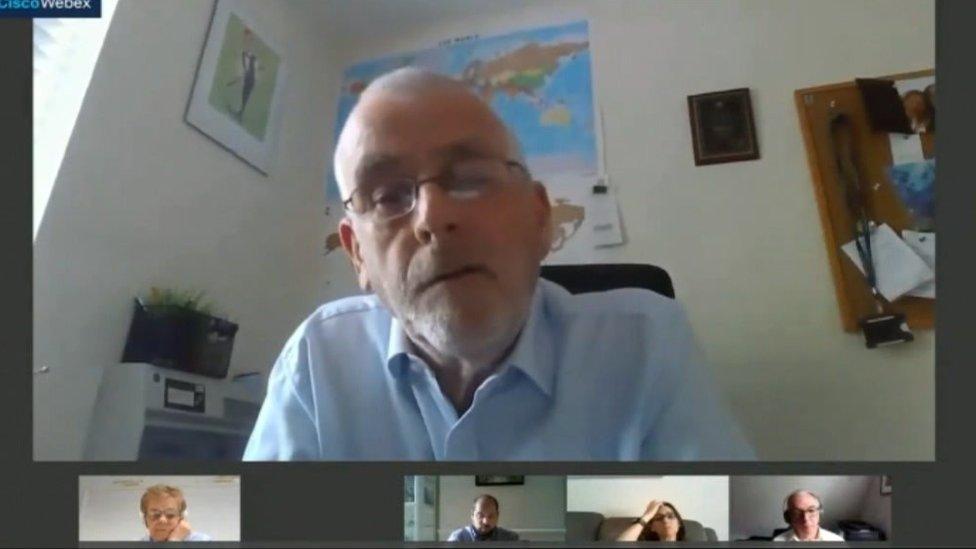
Liberal Democrat Dennis Parsons repeatedly used a racial slur but said he was doing so to show how culture had changed
Florence Nyasamo organised a Black Lives Matter protest in Cheltenham on 8 June.
She runs a charity aimed at helping businesses meet equality laws and said most bodies were "happy to comply", but said often they did "not really deal with issues, because these issues are very uncomfortable".
"Most of our institutions were not set up for a diverse world, so this is structural and systemic," Ms Nyasamo said.
"They do not have the information or education or deal with inclusivity.
"You can have someone in there but they can't be just a tick box and be there but their voice is not heard."
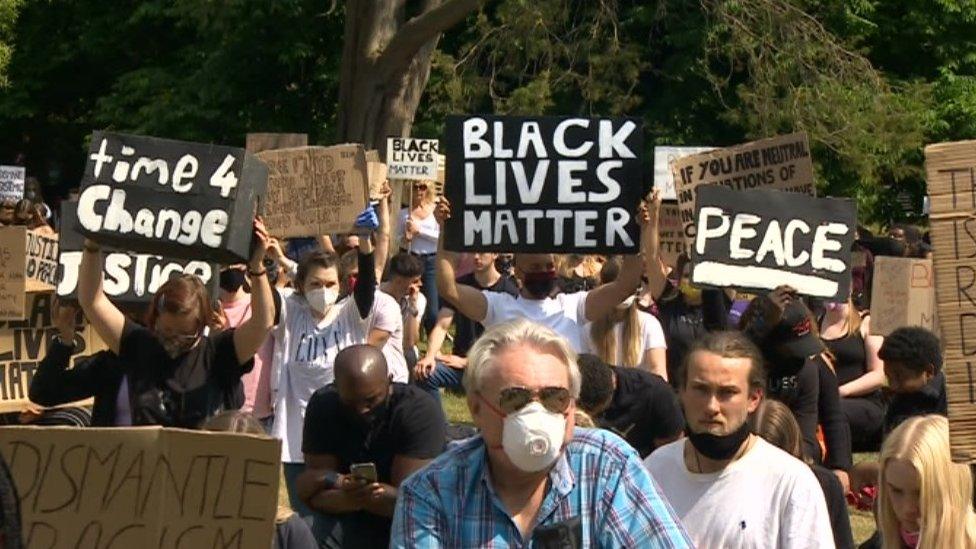
More than 5,000 people took part in the Black Lives Matter protest in Cheltenham on Monday 8 June
Liberal Democrat councillor Karl Hobley said: "I'm gay and when I first moved to Cheltenham, there wasn't a single active LGBT group, or gay bar.
"For me that felt quite isolating, so seeing myself reflected in places became more important."
He said he believed councils needed more diversity.
"You get a situation where all the borough council is white, you've got people with longstanding views and outdated attitudes towards what is acceptable and what isn't.
"They don't get challenged because there aren't any new people coming in.
"They don't intentionally go out to upset anyone, it is because they haven't learned and no-one has challenged them," he said.
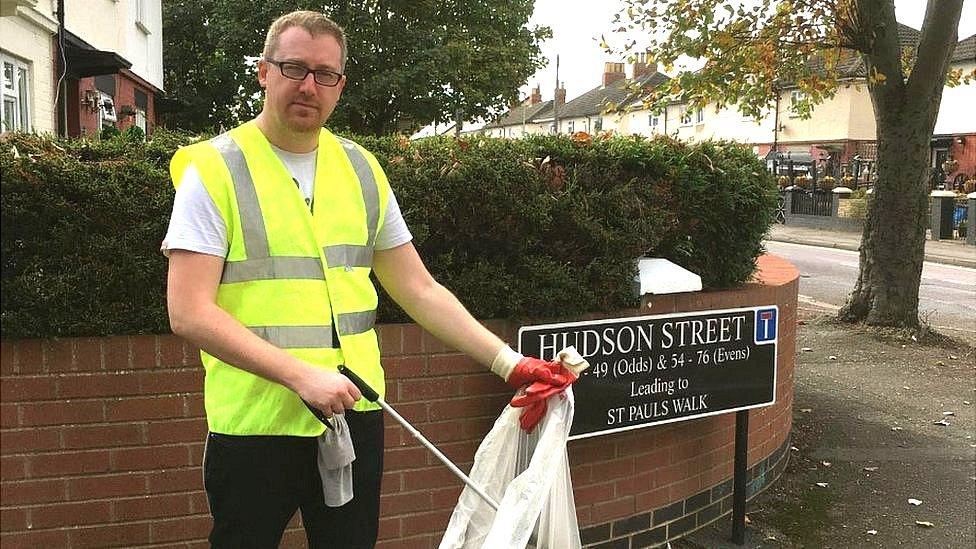
Karl Hobley says new people need to come into councils to challenge outdated views
Ms Nyasamo, however, said she believed organisations needed self-motivation.
She said: "If they cannot commit to educating themselves about such important issues, how can we expect them to advocate for us?"
But Dr Ravalier takes a different approach.
"Just by your presence being in those organisations and bringing those different perspectives and arguments can help reduce some of the ignorance people face."
The LGA pointed out candidates hoping to be elected did not have to be part of a political party but, if they were, it was up to the party to decide who was selected.
"However, as a membership organisation," a spokesperson said, "the LGA has been constantly working with all councils towards increasing diversity and inclusion.
"We have been successfully running a range of programmes and campaigns including our Be a Councillor campaign, development programmes for BAME councillors, our 21st Century Councils toolkit, and our guide to handling intimidation.
"Our support has helped local political parties and councils to address the needs of those who have other important commitments and responsibilities, such as caring for children and looking after elderly relatives."
The LGA said it wanted to see more people of colour, women, parents and carers to stand and step up to leadership roles to "create a working environment which is attractive and supportive for people from all groups and backgrounds".
- Published12 June 2020
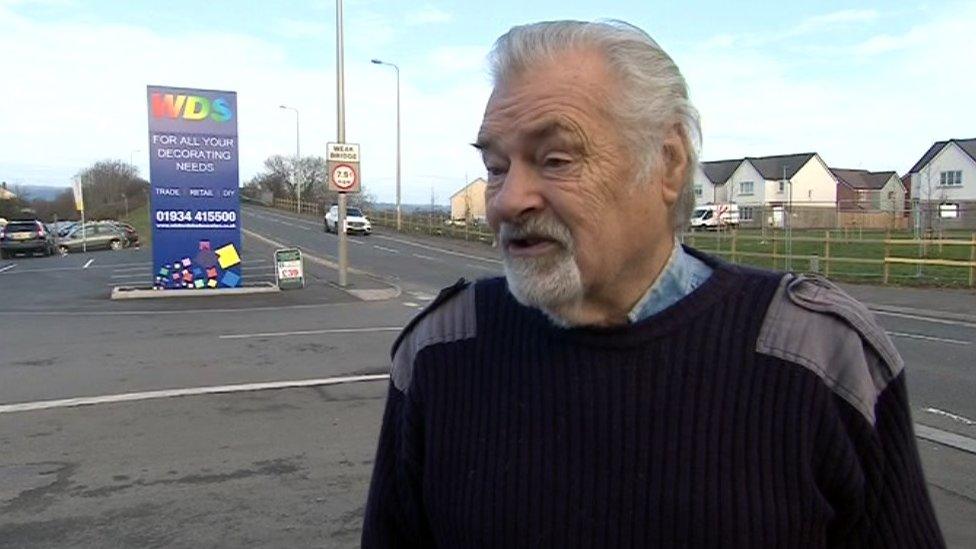
- Published18 June 2020
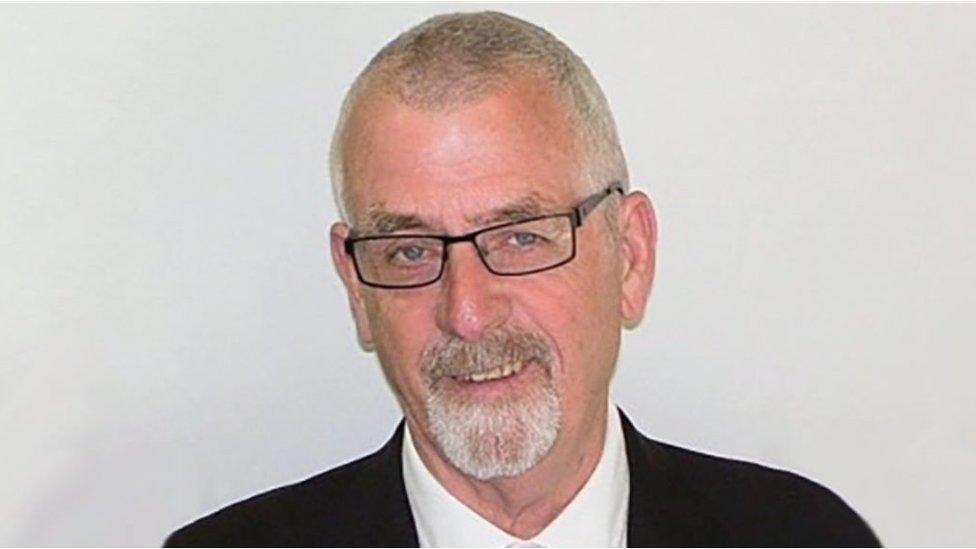
- Published30 May 2020

- Published9 June 2020
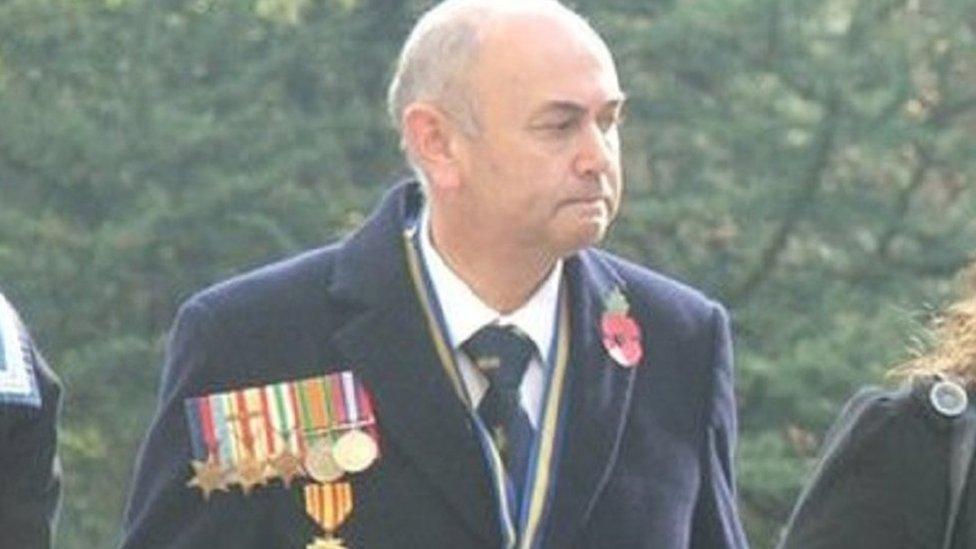
- Published9 December 2019
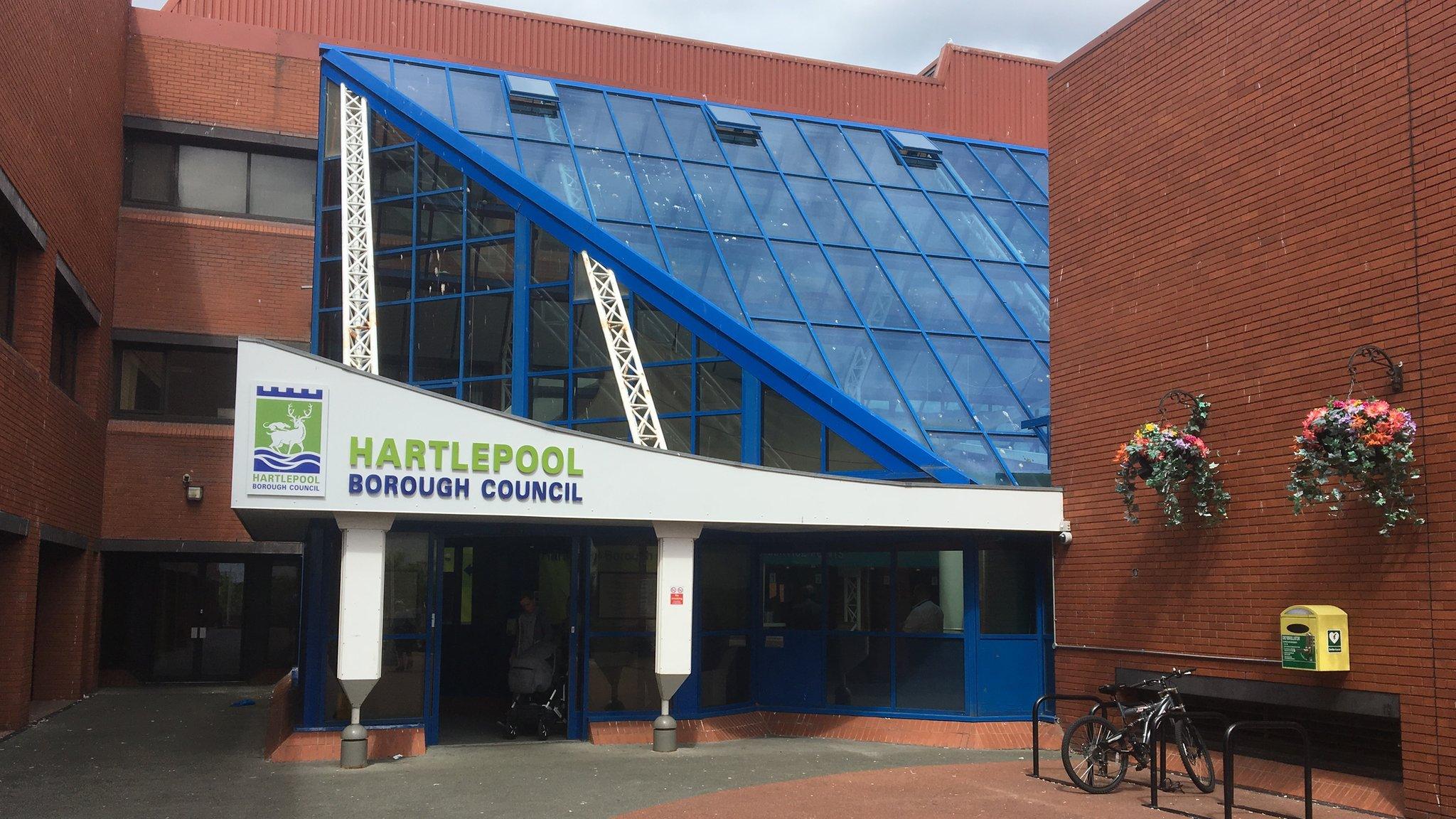
- Published26 April 2019
